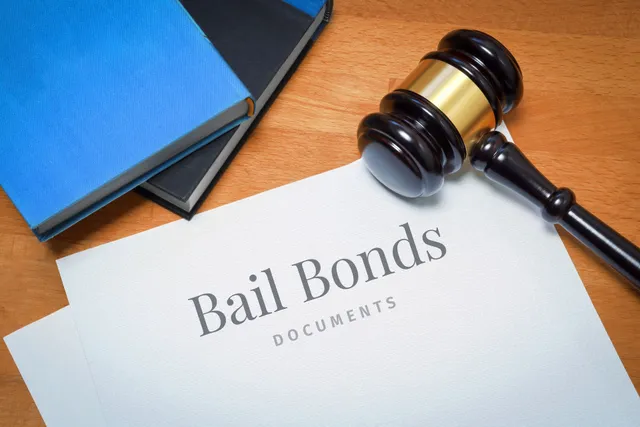The Hidden Journey of Bail Bonds After Your Case Closes
When you think of bail bonds in Los Angeles, you probably picture the initial steps of securing freedom for someone awaiting trial. But what happens to a bail bond once the case concludes?
This lesser-known aspect of the justice system can be confusing. Whether you’re a family member helping a loved one or someone facing charges yourself, understanding what happens to a bail bond after the case is over is essential.
In this article, we will not only clarify the process but also prepare you for any financial or legal responsibilities that follow.
Understanding the Basics of Bail Bonds
Bail bonds are an integral part of the justice system in areas of Los Angeles, like Santa Monica and the California coast. They serve as a guarantee that the accused will appear in court after being released from custody. Essentially, a bail bond is a contract between the defendant, the court, and the bail bondsman.
What Are Bail Bonds?
A bail bond is a financial agreement that allows a defendant to be released from jail. Instead of paying the full bail amount set by the court, the defendant or their family can pay a percentage—usually 10%—to a bail bondsman. This fee is non-refundable.
How Do They Work?
Once the fee is paid, the bail bondsman posts the full bail amount on behalf of the defendant. The court then releases the defendant, who must comply with all court requirements, including appearing at all scheduled hearings.
Why Are They Important?
Bail bonds enable individuals to prepare for their court cases without being confined to jail. This can be crucial for maintaining employment, supporting family, and seeking legal counsel.
What Happens When the Case Ends?
You might wonder, “What happens to a bail bond when the case is over?” The outcome depends on several factors, including the court’s final decision and whether the defendant fulfilled all obligations.
Case Dismissal or Acquittal
If the court drops the case or the defendant is found not guilty, the bail bond process usually ends without issues. In these instances, the court will release the bail bond.
Guilty Verdict or Plea
In cases where the defendant is found guilty or takes a plea deal, the bail bond may still be released, provided all court appearances and requirements are met.
Breach of Contract
Failing to appear in court or violating the terms of release can lead to complications. In such cases, the bail bondsman may have to pay the full bail amount to the court, and the bond’s collateral may be forfeited.
The Financial Implications
Understanding the financial aspects of bail bonds is crucial for anyone involved in the process. This knowledge can help you prepare for what happens after the case concludes.
Refundable or Non-Refundable?
The initial fee paid to the bail bondsman is non-refundable, regardless of the case outcome. However, any collateral put up for the bond may be returned, provided there were no breaches of contract.
Forfeiture Risks
If the defendant fails to meet court requirements, the bail bondsman may seize the collateral to cover the full bail amount. This could include property, vehicles, or other valuable assets.
Potential Additional Fees
Some bail bondsmen may charge additional fees for services rendered, especially if extra measures were taken to ensure the defendant’s compliance with court orders.
Legal Considerations
Navigating the legal aspects of bail bonds can be complex. It’s essential to understand your rights and responsibilities to avoid any pitfalls.
Compliance with Court Orders
The most important legal requirement is complying with all court orders, including appearing at all hearings and following any conditions set by the court.
Consultation with Legal Counsel
It’s always advisable to consult with an attorney specializing in bail bonds and criminal law. They can provide guidance tailored to your specific situation.
Knowing Your Rights
Understanding your rights can protect you from unfair practices. For example, you have the right to a clear explanation of all fees and conditions associated with the bail bond.
Role of the Bail Bondsman
The bail bondsman plays a pivotal role throughout the bail process. Their responsibilities extend beyond just posting bail.
Initial Agreement
The bail bondsman assesses the risk of posting bail based on various factors, including the defendant’s criminal history and the nature of the charges.
Monitoring Compliance
Bail bondsmen often monitor the defendant to ensure they comply with court orders. This can include regular check-ins and updates on court dates.
Handling Complications
If issues arise, such as the defendant failing to appear in court, the bail bondsman is responsible for resolving them. This may involve hiring a bounty hunter or working with law enforcement.
Impact on Future Bail Opportunities
Your experience with a bail bond can influence future interactions with the justice system. It’s essential to be aware of this impact.
Establishing Trust
Successfully fulfilling all bail requirements can build trust with bail bondsmen and the court, potentially making it easier to secure bail in the future.
Consequences of Breach
On the other hand, failing to meet bail conditions can make it more challenging to secure bail in the future. Courts and bail bondsmen may view you as a higher risk.
Learning from Experience
Use the experience to improve your understanding of the justice system. This knowledge can be invaluable if you or someone you know faces similar situations in the future.
Understanding what happens to a bail bond when the case is over is crucial for anyone involved in the process. From the financial implications to the legal requirements, being informed can help you navigate the system more effectively.
Ready to Secure Your Loved One’s Freedom? Contact Escape Bail Bonds Today!
Navigating the bail process can be overwhelming, but you don’t have to do it alone. Escape Bail Bonds has years of experience in Los Angeles, CA, ensuring a smoother, faster release for your loved one.
Our experienced team is committed to ensuring a swift and efficient release for your loved ones.
We offer assistance over the phone in just one call. We make things easy with our digital signature process. With 24/7 availability, we cater to your needs promptly, whenever you require our services.
Don’t let the complexity of bail bonds add to your stress. Contact Escape Bail today for reliable, affordable, quick bail bond services. Your peace of mind is our top priority.

need help?
Our pre-trail release expertsare available 24/7 and areready to help secure yourfreedom.
Call us nowLearn more about best california bail bonds
Have questions?
Our pre-trail release experts are available 24/7 and are ready to help secure your freedom.





